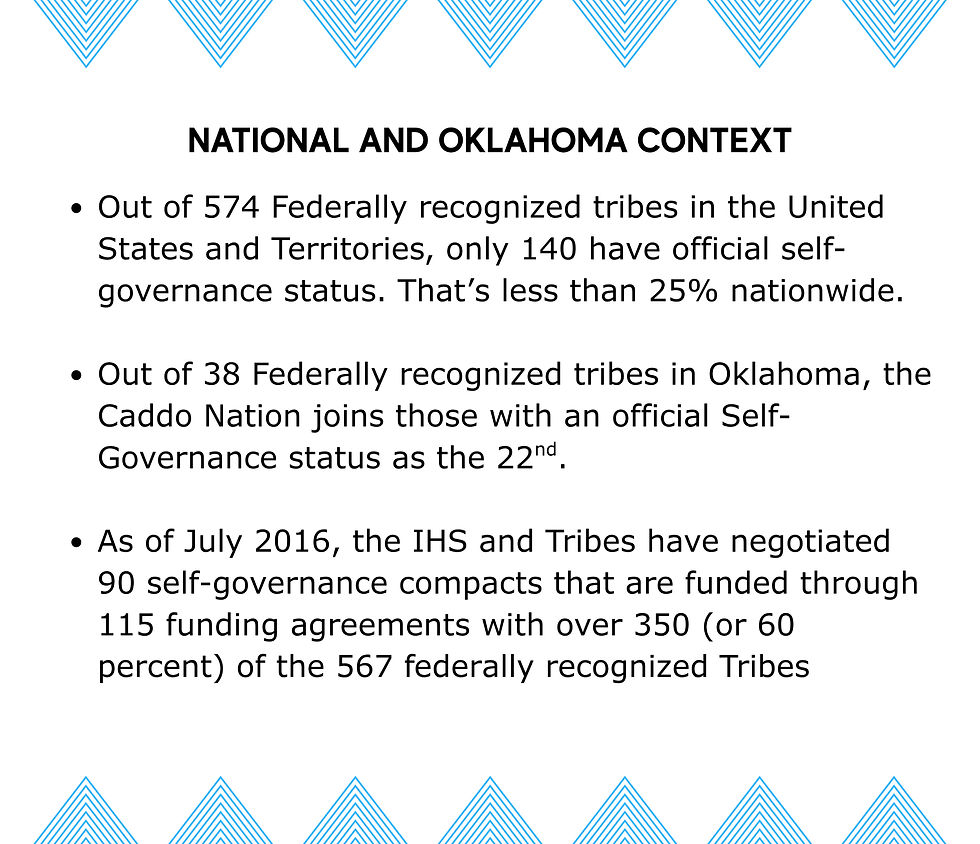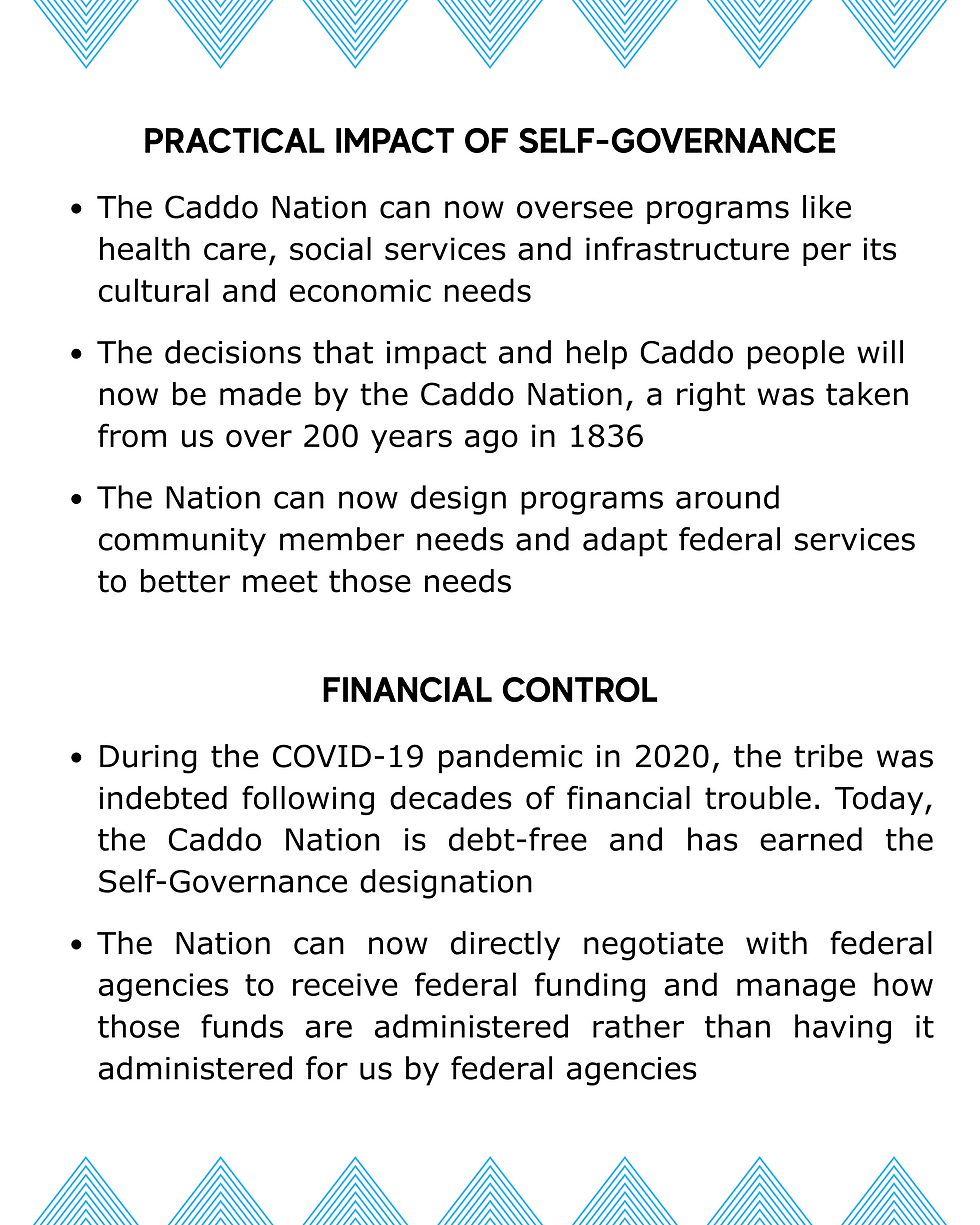Caddo Nation Self-Governance
- Leslie Halfmoon
- Jul 8, 2025
- 2 min read

Historic Achievement: Caddo Self-Governance
The Caddo Nation of Oklahoma was accepted into the federal government's Tribal Self-Governance Program last week, making the tribe the 22nd in the state out of 38 Federally recognized tribes, effective July 1. This is monumental – as it’s the first time the tribe has maintained the financial stability required in generations to be able to move the tribe forward regarding tribal member needs.
CADDO SELF-GOVERNANCE AND THE “ONE BIG BEAUTIFUL BILL”
In the midst of a funding crisis for tribes and already $1 billion in cuts to federal funding threatening tribal programs, the "One Big Beautiful Bill Act" (OBBBA) was signed into law by President Trump on July 4, 2025, representing a sweeping overhaul of federal policy across agriculture, transportation, energy, defense, tax, healthcare and more. This massive legislation includes significant changes to federal programs and funding that will affect how tribal nations interact with federal agencies.

What's Next?
Caddo Nation Leadership to Navigate a Critical Negotiation Period
With the One Big Beautiful Bill changing how federal agencies operate and fund programs, having self-governance status means the Caddo Chairman must take the lead at:
Direct Federal Negotiations: Rather than going through BIA middlemen, the Chairman’s office now negotiates directly with federal agencies
Complex Policy Navigation: The new legislation creates both opportunities and challenges that require sophisticated understanding of federal policy, statutes, trust obligations and other funding opportunities that directly impact and help all tribal enrolled tribal members
Financial Management: Eligibility requires tribes to maintain financial stability for three consecutive years with no significant and material exceptions in their annual audits
Some of the Critical Programs Involved That will Benefit Caddo Nation Members:
Healthcare: Direct control means faster response to health crises and culturally appropriate care
Housing: Can prioritize housing needs without federal bureaucratic delays
Emergency Services: Direct access to emergency funding and faster deployment of resources
Economic Development: Can pursue business opportunities without lengthy federal approval processes
Education: Can prioritize and pursue federal funding for a more robust educational program including post-secondary and Adult Education, Job Placement and Training and education institutional development
Language and Cultural Preservation: Can prioritize and pursue federal funds for language preservation, language immersion and cultural programs
Welfare and Social Services: Can pursue funding to provide expanded social services and welfare programs without the constraints of federal approval

The Bottom Line:
In four years, the Caddo Nation has achieved something that took generations to restore - the right to govern ourselves. In this new landscape created by recent federal legislation, understanding both the opportunities and pitfalls of direct federal engagement will determine whether our self-governance status translates into tangible improvements in housing, healthcare, education, and economic opportunities for every tribal member.
This is about survival in the truest sense - not just existing, but thriving as a sovereign nation with the tools to build the future your community deserves.







Comments